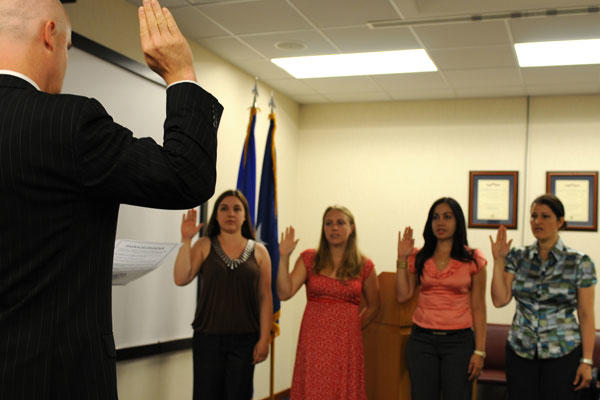Republican bills aimed at reversing President Obama's executive order on immigration may hurt Iraqi and Afghan interpreters who aided American forces and split up military families in the U.S., says an immigration attorney and retired Army lieutenant colonel.
In recent days, Rep. Robert Aderholt, R-Alabama, and Sen. Ron Johnson, R-Wisconsin, have filed bills to repeal President Obama's immigration legislation. The bills would limit reasons for allowing immigrants applying for legal residency to stay in the U.S. -- called parole-in-place -- while their paperwork is being processed.
Attorney Margaret Stock said the laws are so restrictive they will "stop the [Defense Department] program whereby they parole translators who are in danger from ISIS in Iraq or al Qaeda in Afghanistan. They'd just have to stay there and get killed."
Military families with foreign dependents, meanwhile, including service members who marry foreign nationals, are not protected in the House and Senate bills, she said, which also will sweep away a decades-old law by which the U.S. provided parole-in-place status for visa applicants, including foreign-born members of military families, during emergencies.
Examples would be Vietnamese ushered in after the fall of Saigon in 1975 and Filipino applicants given parole-in-place following the eruption of Mount Pinatubo in 1991, she said.
Service members affected by the law, if it is passed, would be any who has foreign family members, including a spouse.
For example, said Stock, under the law a soldier who marries a Japanese citizen would have to leave the spouse behind if the military tour ends before an application is processed.
"But if there's an emergency that requires the person to get here earlier -- typhoon, earthquake, volcanic eruption, coup, war, nuclear attack, whatever -- the President would have no authority to bring the military family members to the U.S. on an emergency basis," she said.
"These bills have the potential of harming hundreds of thousands of military family members," Stock said.
She said she does not know if the bill sponsors -- two so far for the Senate version filed Jan. 8 and about 37 for the House version, filed Jan. 7 -- are aware of what their legislation will do to the military. All sponsors are Republican.
GOP lawmakers have bristled at Obama's November executive order, in which he made it possible for millions of undocumented immigrants to stay in the U.S. and get a work permit and a Social Security number without fear of being deported.
Under the proposed House and Senate bills, parole entry to the U.S. would be allowed for only a handful of reasons to include humanitarian parole.
They may also be paroled into the U.S. if they are donating an organ or tissue to a close family member or if a close family member is near death and would not live long enough for an application to be processed normally.
The bills also have provisions for public interest paroles. In these cases, people who have assisted the U.S. in a law-enforcement case or espionage investigation may be paroled into the country if they are needed to prosecute the case or if their lives are in danger in their own country.
Stack said these are the only exceptions spelled out in the bills as they are written.
"So that means no parole for Saigon evacuations, Mount Pinatubo eruptions, threats by ISIS or Al Qaeda or the Taliban, funerals for dead Marines, or a whole host of other reasons why military-related paroles were granted in the past," she said.
The bills also specifically state that work authorization will not be granted to those who are allowed into the U.S., something that the Defense Department has always requested for its applicants.
"The DoD always asks for a work permit for their humanitarian parolees so that they don't have to go begging in the street. They support themselves in the U.S. by working," she said. The bills "really will do terrible damage to the national defense and foreign policy if it becomes law. It repeals an authority that every President has exercised dating back to 1952."
Stock said the parole authority has been "a safety valve in immigration law for decades. It has saved a lot of lives -- and a lot of military families."
"Now they [Republicans] are mad at President Obama, so they want to remove the safety valve altogether," she said.
Stock said it is ironic that the GOP bills were filed only days after U.S. Citizenship and Immigration Services formally reversed a policy put in place late last year that threatened to separate family members of foreign-born nationals who joined the U.S. military and became citizens.
"It's also ironic that Congress seems to be doing this because they are upset about President Obama's executive action ... but the military family parole program [the legislation threatens] was started under George Bush," she said.
-- Bryant Jordan can be reached at bryant.jordan@military.com.




























